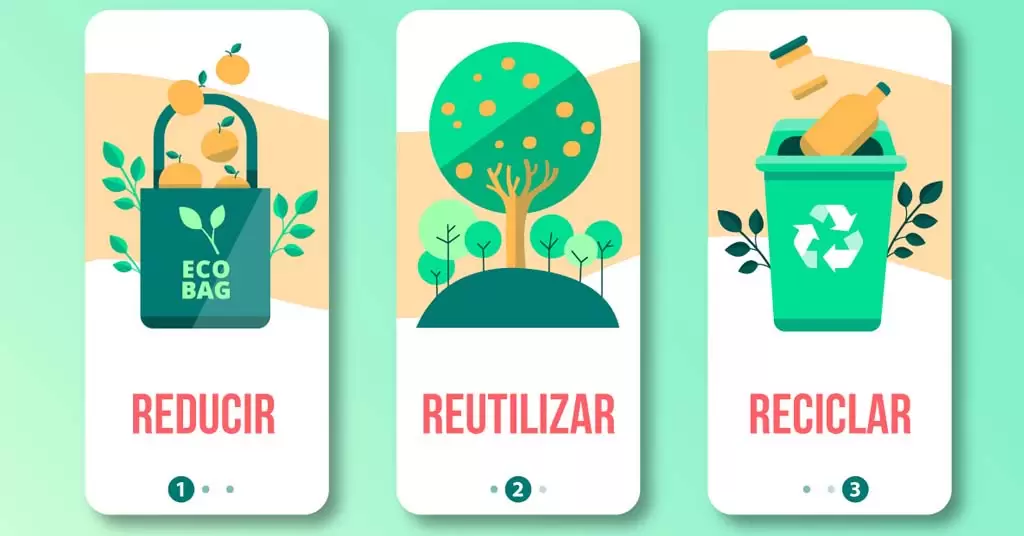More and more people have chosen to be more environmentally responsible. That is why words have emerged in our vocabulary that we already used, but now use more frequently and with greater purpose. From Greenuso we want to talk to you about words that seem the same, but in reality are not, recycle and reuse. This entry has been created especially for you to know the difference between recycling and reusing. Also, we will tell you what the three R’s are and the advantages of each one. Let’s start!
Know the difference between recycle and reuse
Reuse, Recycle and Reduce are considered the three R’s of ecology. Their concepts are very similar, but we have to learn to differentiate them if we want to use them properly. On the one hand, recycling is when the material from which a certain product is made is used and then converted into something else. For example, glass bottles are turned into glasses or used paper can be transformed into new paper. Whereas, reducing is about decreasing consumption, both of products and of energy. Reducing is the best way to start raising awareness, preventing and minimising damage to the environment. In the process of reuse, the material of the discarded object is not modified, but is reused for another purpose. Almost all types of waste can be reused, even for artistic purposes.
On the one hand, recycling is when the material from which a certain product is made is used and then converted into something else. For example, glass bottles are turned into glasses or used paper can be transformed into new paper. Whereas, reducing is about decreasing consumption, both of products and of energy. Reducing is the best way to start raising awareness, preventing and minimising damage to the environment. In the process of reuse, the material of the discarded object is not modified, but is reused for another purpose. Almost all types of waste can be reused, even for artistic purposes. What can we reduce, reuse and recycle?
In the following, we want to talk to you about the actions you can take in each of the processes of reducing, reusing and recycling:Reduce
Among the things we can reduce are- Prudence to think before making a purchase, if necessary.
- Turn off unused lights in your home or office.
- Turn off the water after use.
- Limit the use of wrapped or packaged products.
- Always carry a bag with you when you go to the market or shop.
- Reduce the emission of contaminating gases.
Reuse
Amongst what can be reused:- Glass bottles are excellent for decorating homes and offices.
- Coffee grounds are wonderful to reuse in the garden.
- Toothbrushes, after using them you can reuse them in the cleaning of the house.
- Magazines or brochures can be used for various crafts.
- The aluminium cans in which the canned food comes, are ideal to let your imagination run wild and make any idea come true.
- Hard bread can be given a second chance, as long as it is mould free, you can make it into an ingredient for bread soup, bread crumbs, creams and cakes.
- Toilet paper tubes can be cut and are ideal as a pot to plant seeds.
- Newspaper can be reused to line books for better preservation.
Recycle
The materials you can recycle are:- Aluminium is a 100% recyclable material and can be recycled over and over again without losing its qualities.
- Paper is a material that we get many in the rubbish of the house or office, therefore, it is ideal to lower a large percentage of rubbish, recycling this material.
- PET plastic bottles are a very easy material to recycle and if you don’t do it, it doesn’t degrade.
- By recycling the glass we are saving 50% of energy compared to a virgin glass.
- Corrugated or corrugated cardboard is a material that is produced by the ton and is abundant in commercial sectors. Each tonne recycled saves over 3.3 cubic metres of landfill space.

